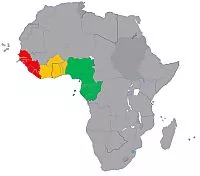Who: Ghana Grains Council, United States Agency for International Development (USAID), Image-Ad
What, Why, When: The Ghana Grains Council with financial support from the USAID launched mFarms1, a digital platform, in Sunyani in the Brong Ahafo region of Ghana during its annual pre-harvest agribusiness fair in October. The function of mFarms is to provide agribusiness services which links all the principal players across the entire agriculture value chain with the long-term goal of driving efficiency and increasing food security.
Outlook: The agricultural sector in Ghana remains one of the major drivers of the economy and accounts for 45%2 of all employment in the country. According to the Ghana Statistical Service, the agricultural sector positioned second with 4.6% growth after the services sector's 5.7% in 2014. Total revenues generated over the same period by the agro-sector (crops, livestock, forestry and fishing) stood at US$6m in 2014 against US$5m in 2013. That said, according to Ghana's Ministry of Finance and Economic Planning (MoFEP), the agro-sector's contributions to national GDP declined from 31.8% in 2009 to 20.6% in 2014. This decline has been attributed to several factors such as the change in commodity prices on the international markets. Domestically, some critical issues include land disputes, a dearth of farm inputs, changing environmental patterns affecting rainfall, inadequate irrigation systems and a knowledge gap in new technologies to boost production.
However, the advent of new technology platforms such as mFarms, is beginning to play a critical role in the agribusiness value chain. Farmers are leveraging on this new platform to plug the gap in the shortage of, for example, agricultural extension officers who educate farmers on best agricultural practices. As it stands now, some sources indicate that the ratio of extension officers to famers in Ghana is 1 to 10003, which is woefully inadequate compared with global standards of 1 to 4504. Ghana is home to other agribusiness content platforms such Esoko and Farmerline, which provide services both inside and outside of Ghana. It must be stated with the spate of entrepreneurial activity on the ascendancy in Ghana, the youth is using digital platforms to create agribusiness trading logistical apps that will increase market access by bringing agro products closer to consumers. Organisations such Lundin, Acumen, Kosmos Innovation Centre and Agro Mindset Group are working hard to make agribusiness an attractive venture for the teeming youth through education.
Footnotes
1 http://www.myjoyonline.com/business/2016/October-25th/ghana-progresses-with-use-of-technology-to-boost-agric-production.php
2 http://data.worldbank.org/indicator/SL.AGR.EMPL.ZS?locations=GH
3 http://www.graphic.com.gh/features/opinion/food-security-the-need-to-educate-farmers-on-extension-services.html
4 https://pmg.org.za/committee-meeting/17892/
The content of this article is intended to provide a general guide to the subject matter. Specialist advice should be sought about your specific circumstances.


